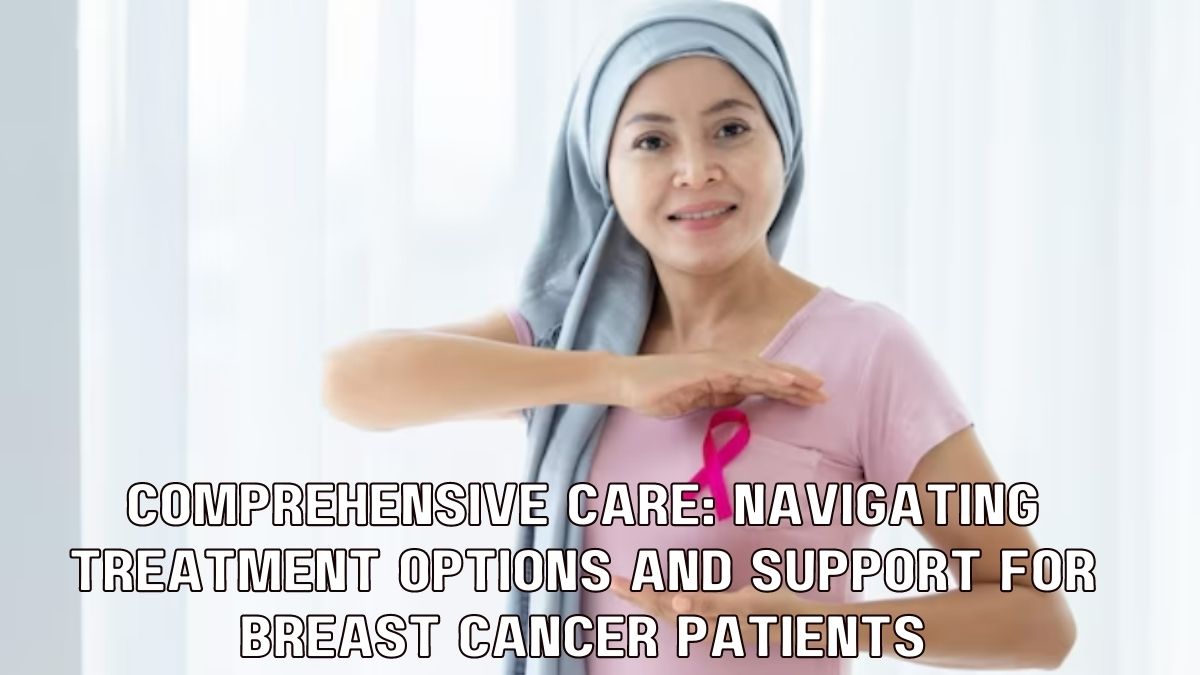Introduction
A breast cancer diagnosis can be a life-altering event that brings about a range of emotions, questions, and concerns. However, with advancements in medical technology and a growing understanding of the disease, there are now more treatment options and support resources available than ever before. In this blog, we will explore the comprehensive care available for breast cancer patients, including various treatment options and the essential support networks that can guide patients through their journey towards recovery.
Understanding Breast Cancer and Treatment Options
Breast cancer is a complex disease that can manifest in different forms, requiring tailored treatment approaches. The treatment plan recommended by medical professionals will depend on several factors, including the stage of the cancer, the type of breast cancer, the patient’s overall health, and their preferences. Here are some common treatment options:

Surgery: Surgery is often the first step in treating breast cancer. It involves removing the tumor and potentially nearby lymph nodes. Depending on the size and spread of the cancer, options include lumpectomy (removal of the tumor only) or mastectomy (removal of the entire breast).

2.Radiation Therapy: This treatment uses high doses of radiation to target and destroy cancer cells. It is often used after surgery to eliminate any remaining cancer cells and reduce the risk of recurrence.

Chemotherapy: Chemotherapy involves the use of powerful drugs to kill or slow the growth of cancer cells. It can be administered before surgery (neoadjuvant) to shrink tumors or after surgery (adjuvant) to eliminate any remaining cancer cells.

Hormone Therapy: Hormone receptor-positive breast cancers are influenced by hormones like estrogen and progesterone. Hormone therapy aims to block these hormones or their effects, helping to slow or stop the growth of cancer cells.

Targeted Therapy: Targeted therapies are designed to specifically target certain molecules involved in the growth and spread of cancer cells. These therapies are often used for specific types of breast cancer, such as HER2-positive breast cancer.

Immunotherapy: This approach harnesses the body’s immune system to identify and attack cancer cells. While still under research for breast cancer, immunotherapy shows promise in some cases.

The Importance of Support Networks
Navigating a breast cancer diagnosis and treatment can be overwhelming physically, emotionally, and mentally. Support networks play a crucial role in helping patients cope with the challenges they face. Here are some essential sources of support:
- Medical Team: An experienced medical team, including oncologists, surgeons, nurses, and other specialists, provides guidance on treatment options and monitors the patient’s progress.
- Family and Friends: Loved ones offer emotional support, accompany patients to appointments, and help with daily tasks during treatment and recovery.
- Support Groups: Connecting with others who are going through similar experiences can provide a sense of community, understanding, and a safe space to share thoughts and feelings.
- Counseling and Therapy: Professional counselors or therapists can help patients manage the emotional toll of the diagnosis and treatment, providing strategies to cope with anxiety, depression, and stress.
- Online Resources: Numerous reputable websites, forums, and social media groups provide information, tips, and stories from survivors that can offer comfort and guidance.

Empowerment Through Knowledge
Comprehensive care for breast cancer patients involves not only medical treatment but also emotional and psychological support. By understanding the available treatment options and building a strong support network, patients can feel empowered to make informed decisions about their health and well-being.
Remember, each patient’s journey is unique, and there is no one-size-fits-all approach. With the right combination of medical care and emotional support, breast cancer patients can navigate their path toward recovery with confidence, strength, and resilience.

Conclusion
A breast cancer diagnosis is a challenge, but it’s also an opportunity for growth, self-discovery, and resilience. Advances in medical science have provided a range of treatment options, while support networks offer the necessary emotional bolstering. If you or a loved one is facing breast cancer, remember that you are not alone—there is a comprehensive system of care ready to guide you through this journey, from medical professionals to support groups and resources. With the right information and a strong support network, the path toward healing and recovery can be navigated with courage and hope.














